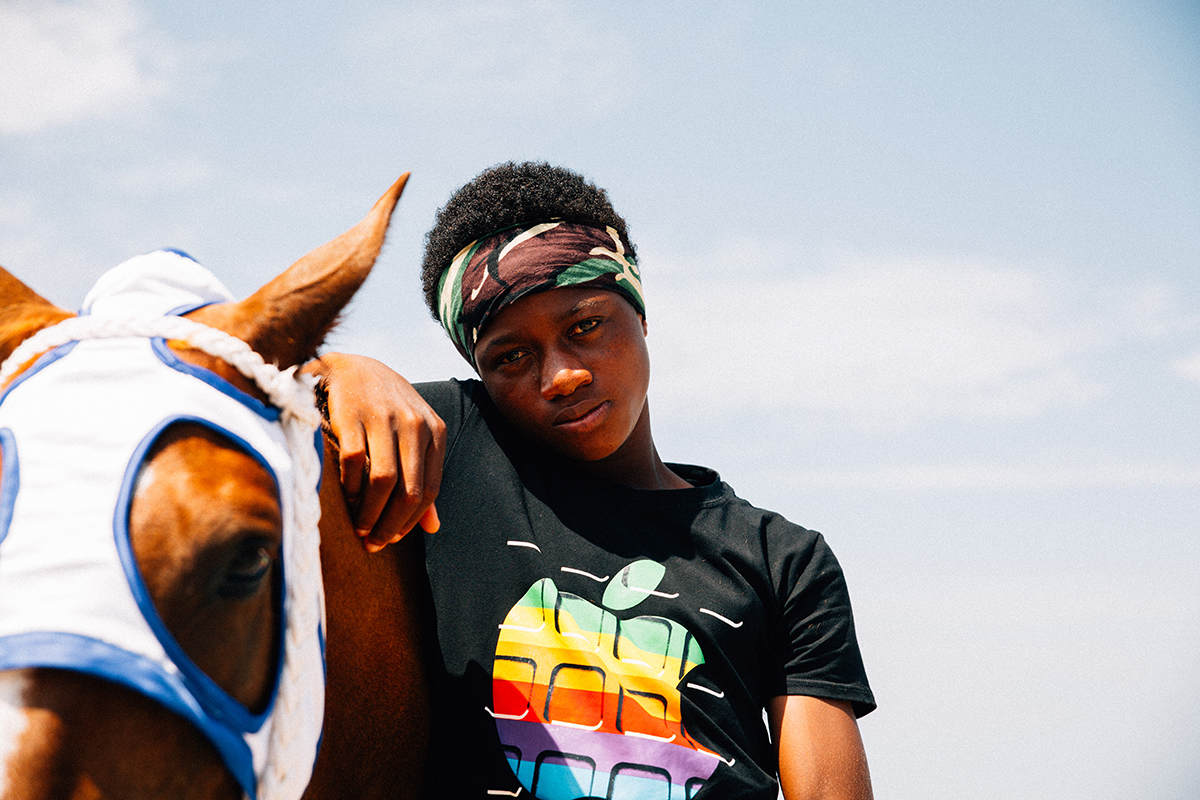Students Behind the Lens: Kaleb Autman
The Chicago 15-year-old makes an emotional journey to Ghana with the Tamron SP 24-70mm VC lens.
By Jenn Gidman
Images by Kaleb Autman
Kaleb Autman is an accomplished photojournalist and filmmaker who's been published by such media outlets as BET and ABC, and who's traveled from the streets of Chicago to the mountains of Cape Town in his quest to document nonprofits and other grassroots organizations effecting change.
This would be noteworthy for any photographer, but in Kaleb's case, there's one thing that makes his achievements even more astonishing: He's only 15. Kaleb, a student at Chicago's George Westinghouse College Prep high school, describes himself in his bio as a "critical thinker, organizer, photographer, poet, blogger, social justice traveler, and tweeter." He's currently working on a project that documents Chance the Rapper's SocialWorks charity, as well as becoming more involved on the activist scene.
"When I was younger, I always knew I wanted to do something different," he explains. "Where I grew up, on Chicago's West Side, it seemed you could dream about being either an athlete or a hip-hop artist; the imagination within my community was very limited. But after attending the Village Leadership Academy—a social justice–themed school founded on the need to serve the community—I began to find things I really loved."
Among those newly discovered passions: traveling, social justice, and food, especially the use of meals to bring people together. "I soon realized I wanted to be a socially conscious creator," he says. "I started out doing food photography, but I wasn't happy doing that. Then I ventured into other types of photography, like weddings and portraits, and started to become more invested. I became better with practice, but I also began to find my niche within the craft. I began documenting history, especially events within the Chicago grassroots-organizing space. Not only did I learn from other photographers and artists, but I also learned from the activists and organizers about creating healthy spaces for everyone. That inspired me to do more, so much so that I began taking pictures on both national and international trips."
Kaleb experienced a temporary setback recently when his camera gear was stolen, but after his initial reaction, he regrouped and put it all in perspective. "When you're documenting very raw and real issues in society, you encounter problems—the same problems that grassroots organizations are trying to stop on a daily basis," he notes. "So yes, I was angry, but I also know that poverty is real. When we talk about the root causes of problems, we began to see that my camera gear getting stolen isn't about me; it's about the problem of why people have to steal in the first place. Through it all, I had a supportive community that helped get me back on my feet. My love for photography allowed me to not be weighed down by what had happened."
In June, Kaleb took a once-in-lifetime educational trip to Ghana, with the Tamron SP 24-70mm VC lens to help him document his travels. Here, a short interview about his experiences and the photos he was able to capture there:
What was the purpose of the trip?
I had the honor and privilege of traveling alongside the Village Leadership Academy on this 10-day trip. This was all part of the World Scholars Program, an effort by the school to teach students, mostly those of color, about international studies throughout the year, then take them to a certain country at the end of the year.
This program is really near and dear to my heart because I've had the chance to become a world scholar through this program. These trips aren't vacations; they're critical analysis of history, culture, and international struggles. The students aren't the only ones pushed to dig deeper—the chaperones and people we meet are challenged to learn and do more as well. This trip especially was an emotional one, from seeing the love in the eyes of the locals to actually standing at the "Door of No Return" at Elmina Castle. Ghana is full of culture, music, love, peace, struggle, and hope. This trip was life-changing for me.
Tell me about your experience using the Tamron SP 24-70mm F/2.8 lens in Ghana.
I loved this lens even before the trip. It has a really fast focusing system, even in moderate to low-light situations. The colors I was getting from the 24-70 surpassed my expectations. And it's built like a machine: Its construction meant it was able to withstand the hot, humid Ghanaian air and the chilly airplanes. I also found when I was carrying this lens around in public that I was able to remain relatively inconspicuous due to the darker color of the lens exterior—very important for photojournalism. I was really impressed with the results.
What was your photographic mission when you went to Ghana?
Going into the trip, my goal was to capture authentic images of not only Ghana and its people, but also the delegation of young folks traveling there. I wanted to document the connections between the youth, as well as moments that were true to me. I didn't want to come in and become just another tourist photographer. I wanted to get to know my subjects and build trust with them, to be able to connect and, overall, capture better images.
Let's talk about some of those images. Tell me about your subjects and what you were trying to show in each photo.
Some teens in Ghana have to drop out of school to provide income for their families. The first two images you see here (one in color, one in black and white) are of a young boy who was using his horse near Accra's Labadi Beach to earn money from tourists. I wanted to get really personal with him in my photos. I feel these images show us the connection you can have with someone without any words being exchanged. They also remind me of how lucky I am as a student to be doing what I love, and to never take that for granted, as some of my peers aren't able to have the same experiences as me.
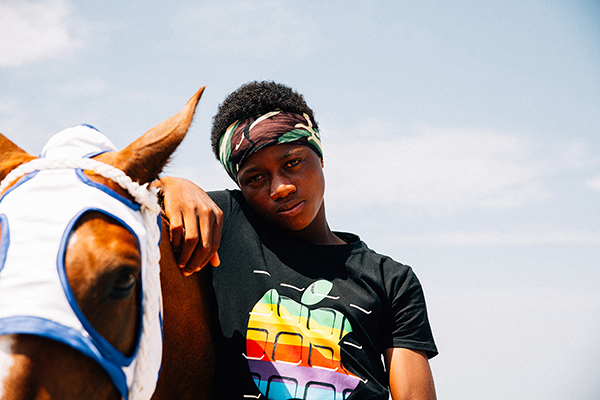
56mm, F/4.5, 1/500th sec., ISO 100
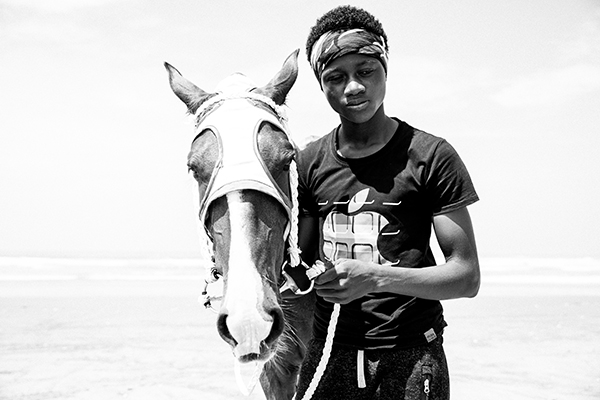
38mm, F/4.5, 1/500th sec., ISO 100
The photo of the monkey was me simply trying to capture the adventure of Africa in a way that didn't stereotype it. As we drove to one of our next locations, we stopped abruptly. On the side of the road was a family of monkeys. Some of us got out of our bus to meet them, while others stayed on the bus and looked through the window.
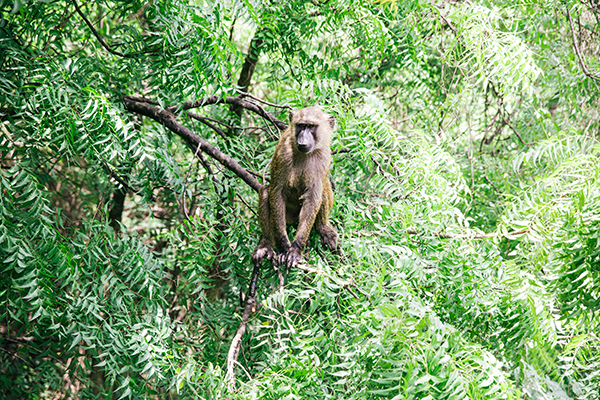
70mm, F/3.5, 1/500th sec., ISO 500
The next two images are actually from the Elmina Castle, where some of my ancestors were stripped of their basic rights and enslaved. I really wanted to document this place as a place of history—a place that changed my life and changed relations all around the world. I wanted to document the rawness of such a place of terror. Out of the entire trip, this was the hardest one to document.
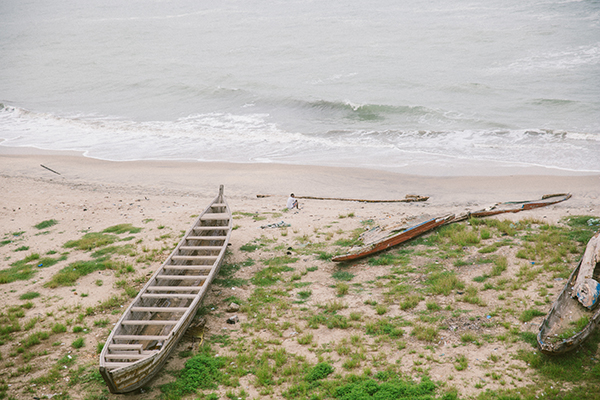
70mm, F/3.5, 1/1000th sec., ISO 200
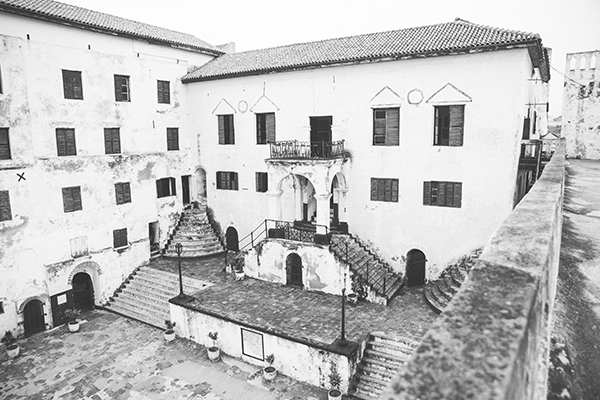
24mm, F/3.5, 1/1000th sec., ISO 200
The last three images come from the New Dawn Center, a school that grew out of a need for early childhood education in Mama Dawn's community. She created a school just like Nakisha Hobbs and Anita Andrews-Hutchinson, the co-founders of Village Leadership Academy. The first image shows those two founders of VLA eating food prepared for us at the New Dawn Center. The final two images are of the children of the New Dawn Center. This school environment is of the highest quality. Mama Dawn is a woman of greatness who's scared by the notion of "average." She's a change-maker.
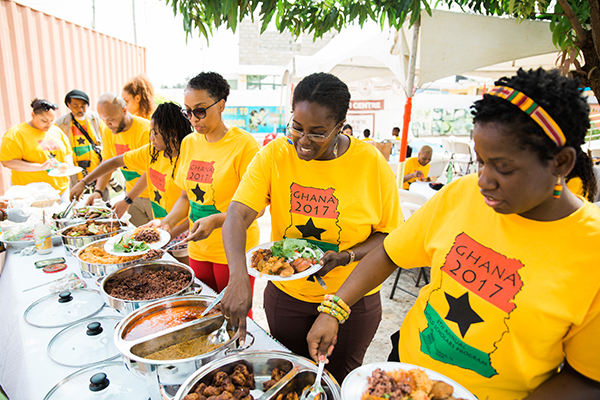
24mm, F/3.2, 1/800th sec., ISO 400
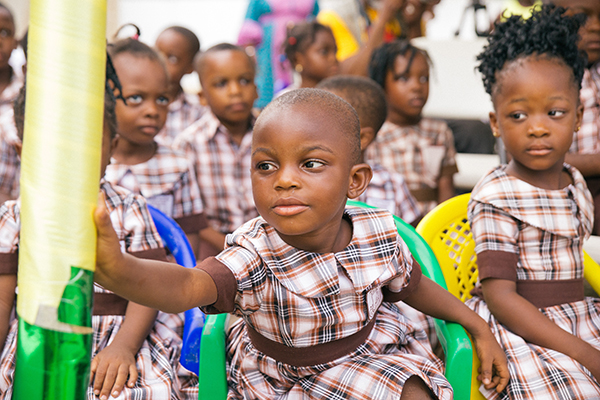
54mm, F/3.5, 1/640th sec., ISO 1000
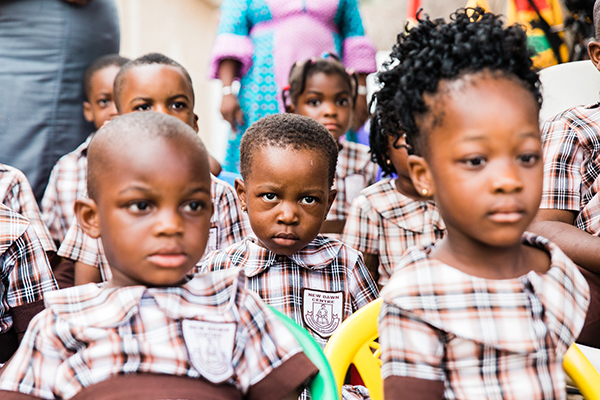
65mm, F/3.5, 1/640th sec., ISO 1000
You've already had your work published by some major outlets. What advice can you offer to other young photographers trying to make inroads and get noticed?
I've been published nationally as not only a photographer, but also as a community organizer. I'm extremely grateful for all of the opportunities I've had and will continue to have. I know I'm truly blessed, even right now. My advice to my peers would be to hustle. Hustling means to drain everything out of every day and not worry about the things that don't matter. If you're truly passionate and are willing to work, then you'll become a success. It's just like the VLA affirmation says: "I can do anything I set my mind to." When you set your mind to it, you're unstoppable.
To see more of Kaleb's work, go to www.kalebautman.com or check out his Facebook page.
